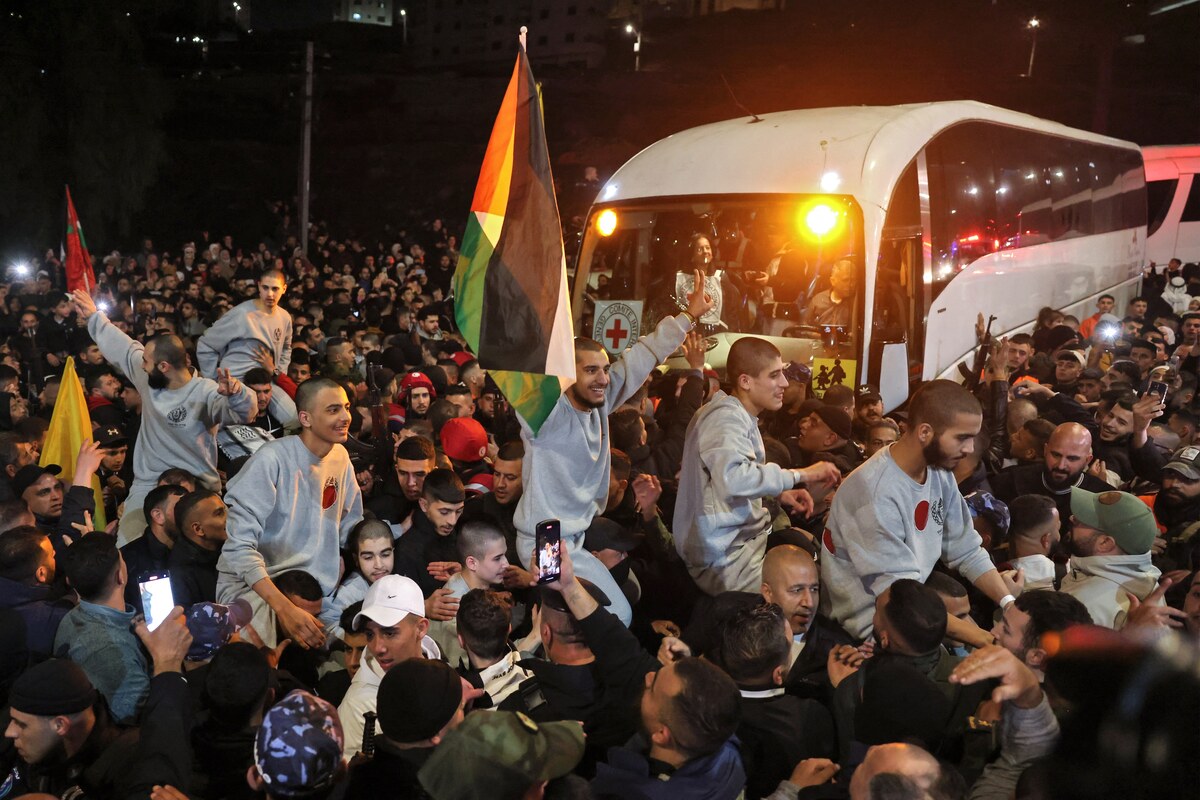JERUSALEM: Israelis stood still and flags flew at half-mast on Sunday as the country marked an especially painful Memorial Day following the carnage of the October 7 attack.
At 8:00 p.m. local time (1700 GMT), sirens sounded across Israel, prompting a minute’s silence in honor of its fallen soldiers and civilian victims of attacks.
“Tonight, we have no peace, and there is no silence,” President Isaac Herzog said at a special ceremony on Sunday evening at Jerusalem’s Western Wall, the holiest site where Jews can pray.
“I stand here, next to the remnants of our temple, in torn garments. This tearing, a symbol of Jewish mourning, it is a symbol of the mourning and sorrow of an entire people this year.”
The annual day of commemoration has always weighed heavily on Israelis, who have fought numerous wars since Israel’s creation in 1948.
However, following the attack by Palestinian militants on October 7 and the ensuing war in the Gaza Strip, which has now lasted more than seven months, the day has new meaning for many.
Top Israeli officials have repeatedly acknowledged failure in preventing the attack, and on Sunday evening army chief Herzi Halevi said he was “fully responsible” for what happened on October 7.
“Every day, I feel its weight on my shoulders, and in my heart I fully understand its significance,” he said at the Western Wall ceremony.
“I am the commander who sent your sons and daughters into battle, from which they did not return, and to positions from which they were kidnapped.”
As with Jewish religious holidays, Israelis commemorate Memorial Day from sunset into the following day, with several events planned at the country’s 52 military cemeteries.
Memorial Day comes ahead of the country’s 76th Independence Day on Tuesday, when Israelis celebrate the creation of their state.
Palestinians remember the creation of Israel as the “Nakba” or catastrophe, marking the expulsion of hundreds of thousands of people from their homes.
For Israelis this Memorial Day is a stark reminder of the October 7 attack.
“The spirit of the fallen holds the promise of our future,” Prime Minister Benjamin Netanyahu said at a separate ceremony marking the Memorial Day.
He said it was a “sacred mission to bring home all the hostages” held in Gaza.
Some 250 Israelis and foreigners were kidnapped by militants and taken to Gaza during the October 7 attack by Hamas.
Israel estimates that 128 are still being held captive there, including 36 who the military says are dead.
The Hamas attack itself resulted in the deaths of more than 1,170 people in Israel, mostly civilians, according to an AFP tally based on official Israeli figures.
“Today is like every other day we have experienced since October 7. We are all mourners,” said Reouven Adam, owner of a wine bar in Jerusalem.
Israel’s retaliatory military campaign aimed at eliminating Hamas in Gaza has killed at least 35,034 people, most of them women and children, according to the Hamas-run territory’s health ministry.
Israel has added more than 1,500 names to the list of soldiers and civilians killed in attacks this year since October 7.
Israel estimates that a total of 25,040 soldiers, members of the security forces and fighters have died on duty since 1860, when the first Jewish inhabitants of Jerusalem’s Old City created new neighborhoods outside the city walls.
Israelis are also paying tribute to 5,100 civilians killed in attacks since then, according to figures from the National Insurance Institute, which keeps the records.
The sirens will sound again on Monday at 11:00 local time, beginning a series of solemn events at Israeli military cemeteries.
These ceremonies will then pave the way for Independence Day festivities on Tuesday, the anniversary of the declaration of the State of Israel on May 14, 1948.
However some celebrations have been canceled this year because of the war in Gaza.
Israel marks especially somber Memorial Day after Oct 7
https://arab.news/2eda2
Israel marks especially somber Memorial Day after Oct 7

- The annual day of commemoration has always weighed heavily on Israelis, who have fought numerous wars since Israel’s creation in 1948






























